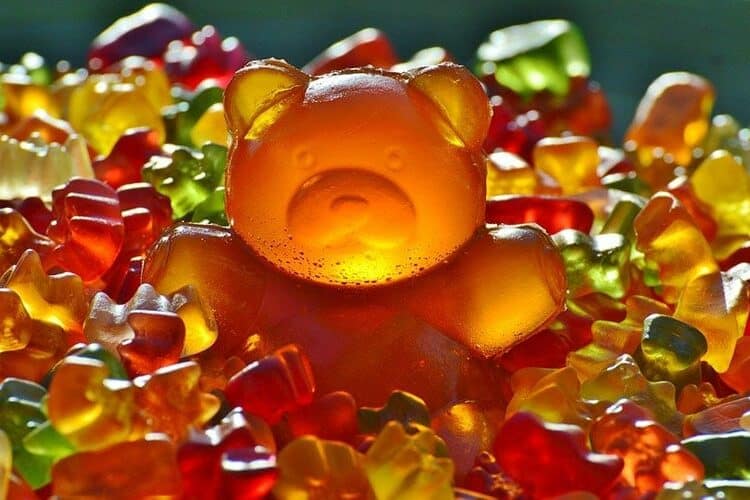The fruity candy known as Gummy Bears is a favorite of many children. It is natural to wonder if it is safe to feed some to your pet because they are so popular. The short answer is you shouldn’t give gummy bears to your dog and we’ll discuss the reasons why in this article.
Our goal is to examine the possibility of negative side effects, help you understand why gummy bears can be dangerous, and find out what to do if your dog has ingested some.
Harmful Ingredients
If your dog has eaten a gummy bear, it’s important to be aware that many contain an artificial sweetener called Xylitol. Sugar alcohol, Xylitol, is a naturally occurring substance found in many fruits and vegetables, including berries, plums, corn, oats, mushrooms, lettuce, trees, and some other fruits. Due to its low glycemic index and antimicrobial properties, Xylitol has become increasingly popular as a sugar substitute in the past decade.
This is the most serious issue with gummy bears. Even a small amount of Xylitol can cause an extreme reaction in your dog, which ultimately can even result in death. When Xylitol is consumed, an excess of insulin is released by the pancreas causing hypoglycemia. Larger amounts can cause liver damage. Symptoms can include vomiting, weakness, tremors, lack of coordination, and difficulty walking. You should call a veterinarian or poison control immediately if your dog ingests xylitol accidentally.
If your gummy bears do not contain Xylitol, eating a few here and there is unlikely to be life-threatening. Although the ingredients are mainly gelatin and sugar, this is still a treat that can cause obesity and elevated blood sugar levels. Excessive sugar consumption can also lead to other conditions, such as diabetes, which can dramatically shorten your pet’s life span.
You should also be aware that gummy bears can present a choking hazard for your dog because of their small size. They can easily lodge in the teeth and throat of your pet.

How Much Xylitol is Poisonous to a Dog?
There are varying amounts of Xylitol present in different products, so the amount of a product that needs to be consumed before toxicity occurs varies. Low doses of Xylitol cause hypoglycemia, whereas high doses result in liver failure. The amount of Xylitol in gum varies between brands, even within the same brand, depending on the flavor and type of gum.
While some brands contain low amounts of Xylitol, others contain greater amounts. As different brands and flavors of gum contain different amounts of Xylitol, it is important to recognize whether a toxic amount has been consumed. Sugar-free gum is the most common source of Xylitol poisoning that Pet Poison Helpline receives calls about, but Xylitol poisoning is also becoming more common from supplements and baked goods. The Pet Poison Helpline received 5,846 calls in 2020 regarding dogs ingesting Xylitol.
Wrapping Up
Since gummy bears contain essentially nothing else besides gelatin and sugar or xylitol, your pet cannot receive any nutritional benefit from them. You won’t feed your pet enough gelatin in order to see if it reduces joint pain, but there is some evidence that gelatin can help relieve joint pain.
With that said, it’s best you leave Gummy Bears out of your dog’s diet!
Featured Image Credit: Pixabay
















